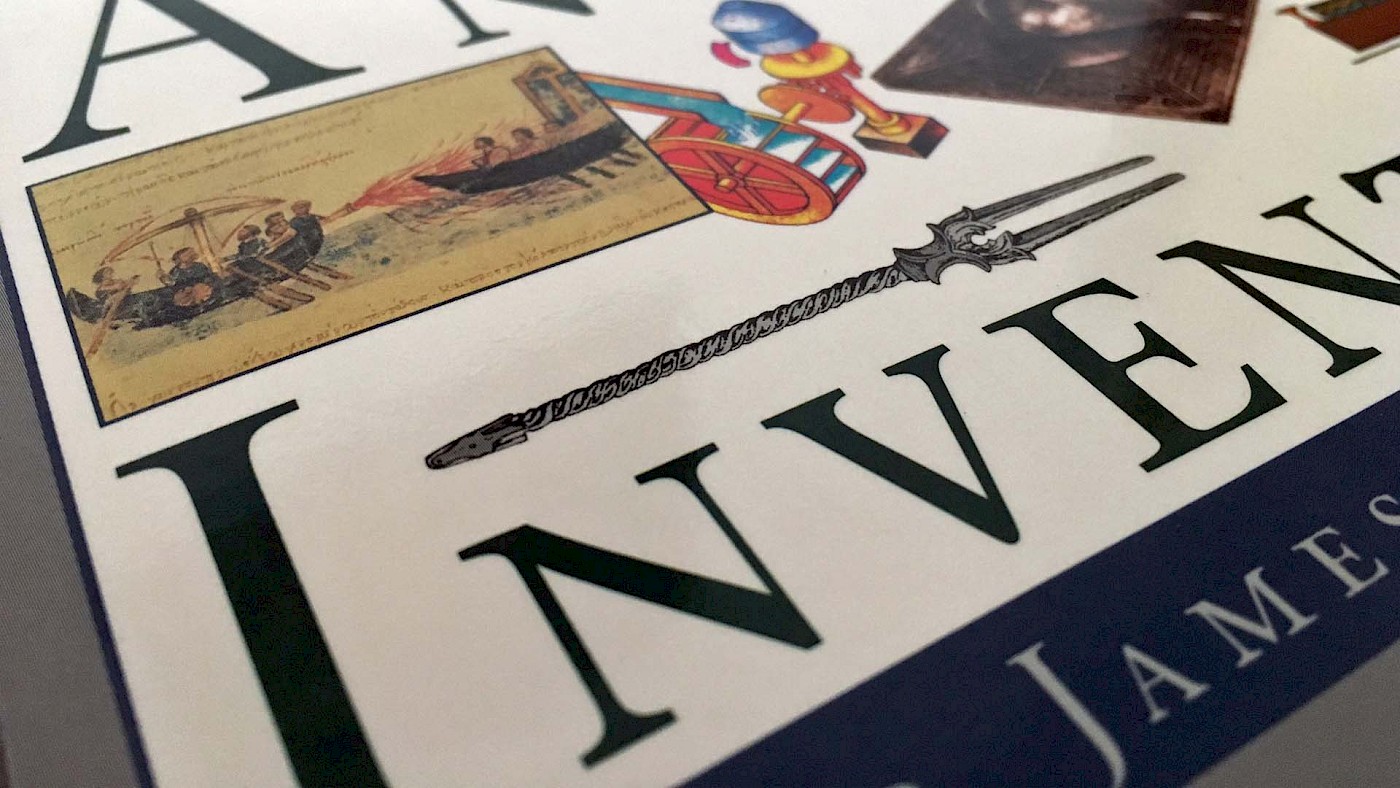One book I always like to recommend to people who want to learn more about human ingenuity in the past is Ancient Inventions (1994) written by Peter James and Nick Thorpe. Monty Python-member Terry Jones even hosted a short BBC television documentary of the same name in 1998 that was inspired by the book.
The book features many interesting descriptions of technologies and inventions. (Ancient in the book’s case covers not just the ancient world, but also the Middle Ages, and includes not just Europe and the Near East.) Some of these are familiar, like the ancient Greek water-clocks used to time speakers in the courts, or the use of lighthouses (the one built at Pharos in the second century BC being the most famous). But ancient snack bars and restaurants, indoor plumbing, perfume and bullfighting are also discussed, alongside more obscure inventions.
The Classical world
One of the characteristics of the Classical world (ca. 500 BC to AD 500) is the perceived flowering of art and culture. This is partially due to the greater abundance of evidence we have for this period, but it cannot be denied that Athens in the fifth and fourth centuries BC was a hotbed of intelligentsia, producing important playwrights, politicians, sculptors and philosophers. With the conquests of Alexander the Great and the later rise of Rome, the ancient Mediterranean and Near East formed a large cultural matrix, a complex system, with a relatively free flow of ideas and information.
It is no surprise that one of the greatest inventors of the Classical world was a Greek who was born in Alexandria in Egypt. He was Hero of Alexandria, whose floruit is usually set in the first century AD. His most famous invention is the aeolipile, a rocket-like engine and the earliest known steam-powered device. Another similar device would have been used to open temple doors, by heating air to displace water. If these inventions had been further expanded upon, the Greco-Roman world might experienced the Industrial Revolution already in the first centuries AD. Unfortunately, these devices were probably not more than experiments without any real practical use.
Certainly, the ancient Greeks and Romans were no strangers to the concept of complex machines, even if the inner workings were considered magical. Homer already describes how the lame god of craftsmen, Hephaestus, created bronze girls to carry him from one place to another. He also forged another automaton, namely a bronze table that would walk on its own accord to serve the gods nectar and ambrosia. The story of the Argonauts, recorded by Apollonius Rhodius in the third century BC, provides a description of Talos, a huge bronze man created by Hephaestus to protect the girl Europa on the island of Crete.
So why did the ancient Greeks and Romans never build robots or other complex machines? A large empire like that of Alexander or Rome, or even a smaller territory such as Ptolemaic Egypt would surely have benefited from such technology? The problem was slavery. Classical Greece and Rome had access to vast amounts of relatively cheap slave labour. The Greek philosopher Aristotle (384–322 BC) regarded it natural for human beings to be divided into free men and slaves. With human labour being so abundant, there was simply no need for machines.
Further recommendations
If you are interested in ancient technology, a few other books can be recommended in addition to Ancient Inventions. John W. Humprey’s Ancient Technology (2006) gives a concise and accessible overview. He discusses such technologies related to food and clothing, water, shelter and security, transportation and coinage, recordkeeping and timekeeping, and crafts.
Also by Humphrey, but more narrow in scope and focused on supplying sources is Greek and Roman Technology: A Sourcebook (2003). Slightly more academic is Technology and Science in Ancient Civilizations (2010) by Richard G. Olson. Among other things, he discusses forms of computation and communication, time-keeping, medical practices, construction technology and the production of food and clothing.
Richard Rudgley’s The Lost Civilizations of the Stone Age (1999) is an extensive look at the advanced know-how available to our Stone Age ancestors. Rudgley sometimes levels rather unfair criticism at his colleagues for perpetuating the idea that prehistoric peoples possessed an unrefined level of culture, but this does little to demean the overall value of the book. Subjects discussed in the book include the origins of language, the possible use of writing (or pre-writing), Stone Age medicines and surgery, pyrotechnology, mining and art.
